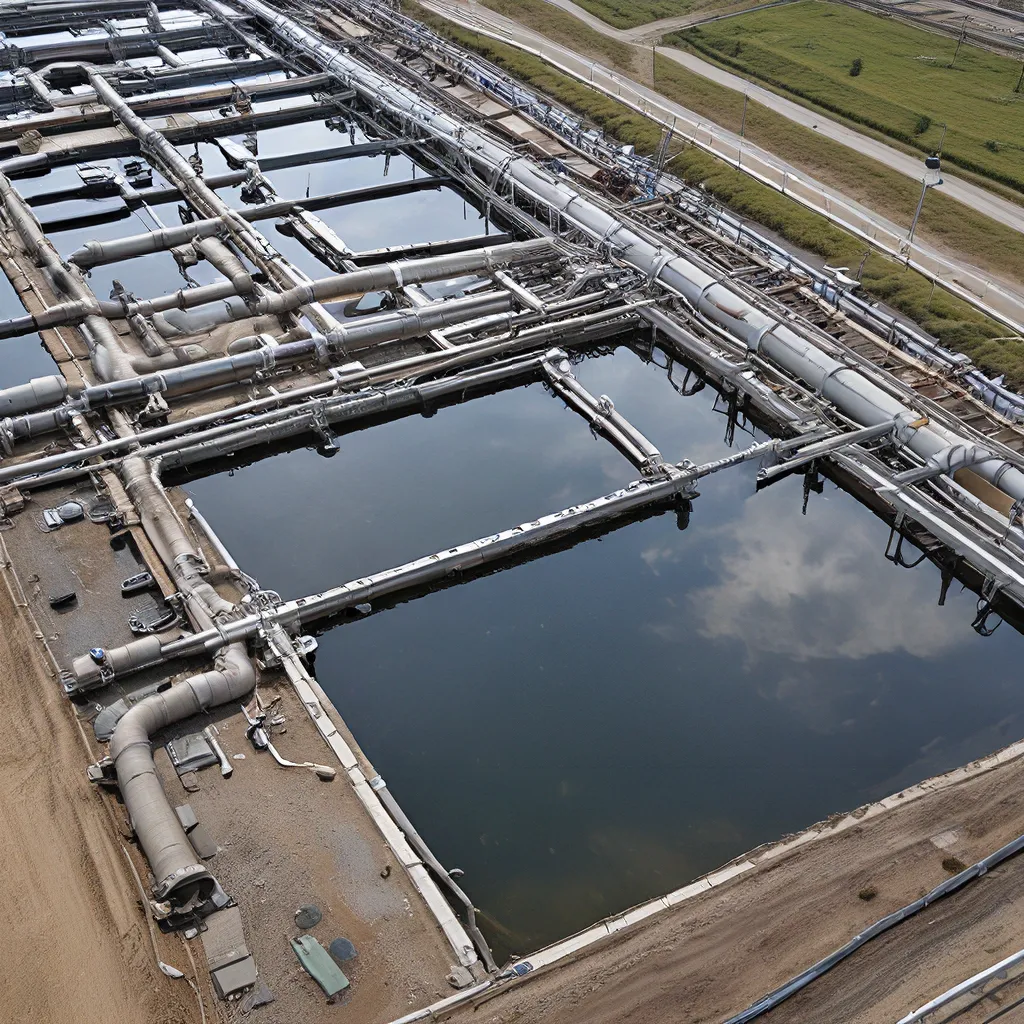
As the global drive towards sustainability intensifies, the intersection of wastewater and the burgeoning hydrogen economy has become an increasingly captivating subject. In this article, I’ll delve into the fascinating ways these two realms are converging, uncovering innovative solutions that could revolutionize how we manage our most precious resource – water.
Unlocking the Hydrogen Potential of Wastewater
If you had told me a decade ago that wastewater could become a crucial player in the hydrogen economy, I probably would have chuckled. But the more I’ve explored this topic, the more I’ve come to realize the immense potential that lies in the convergence of these two domains.
It all starts with the simple fact that wastewater, particularly from municipal and industrial sources, contains a wealth of organic matter and other compounds that can be leveraged to produce hydrogen. Through a process called anaerobic digestion, microorganisms break down these organic materials, releasing methane – a potent greenhouse gas – in the process. But what if we could capture that methane and use it to generate hydrogen instead?
This is precisely the approach that forward-thinking researchers and water service providers are exploring. By integrating biogas-to-hydrogen conversion technologies into wastewater treatment plants, they’re unlocking a new revenue stream while simultaneously reducing the environmental impact of wastewater management.
Just imagine – the very same wastewater that we’ve long seen as a burden could become a valuable resource in the hydrogen economy. It’s a remarkable shift in perspective, and one that holds the promise of a more sustainable future.
The Water-Energy Nexus in Action
As I’ve delved deeper into this topic, I’ve been fascinated by the intricate water-energy nexus that underpins the relationship between wastewater and hydrogen production. It’s a complex interplay, but one that holds the key to unlocking truly innovative solutions.
The International Energy Agency (IEA) has been at the forefront of exploring this nexus, highlighting how the production and use of energy and water are inextricably linked. In the case of wastewater-to-hydrogen, we see this connection in action – the wastewater provides the raw material for hydrogen production, while the resulting hydrogen can then be used to power the very wastewater treatment plants that generated it.
It’s a beautifully symbiotic relationship, and one that holds immense promise for the future. By harnessing the energy potential of wastewater, we can not only reduce our reliance on fossil fuels but also improve the efficiency and sustainability of our water management systems.
Overcoming Challenges and Embracing the Future
Of course, as with any innovative approach, there are challenges to overcome. The integration of biogas-to-hydrogen technologies into existing wastewater treatment infrastructure can be complex and capital-intensive. There are also questions around the scalability and the potential environmental impact of large-scale hydrogen production from wastewater.
But I’m encouraged by the progress I’ve seen, both in terms of technological advancements and the growing awareness and interest in this area. Innovative solutions are emerging, and water service providers like Alpha Wastewater are at the forefront of exploring the synergies between wastewater and the hydrogen economy.
As I look to the future, I can’t help but feel excited about the possibilities. Imagine a world where wastewater is no longer a burden, but a valuable source of clean, renewable energy. Where the hydrogen economy is fueled by the very substance that sustains life – water. It’s a future that is not only possible, but one that we must strive to achieve.
Of course, there is still much work to be done. Ongoing research and development will be crucial in overcoming the technical and logistical hurdles. Collaboration between researchers, policymakers, and industry leaders will be essential in driving this transformation forward.
But I believe that the potential rewards are well worth the effort. By unlocking the hydrogen potential of wastewater, we can not only reduce our carbon footprint and dependency on fossil fuels, but also create new economic opportunities and strengthen the resilience of our water infrastructure.
It’s an exciting time, and I can’t wait to see what the future holds. Who knows – perhaps one day, the very wastewater that we’ve long taken for granted will become the fuel that powers our communities, and the wellspring that sustains our hydrogen-driven economy. The possibilities are endless, and the journey has only just begun.